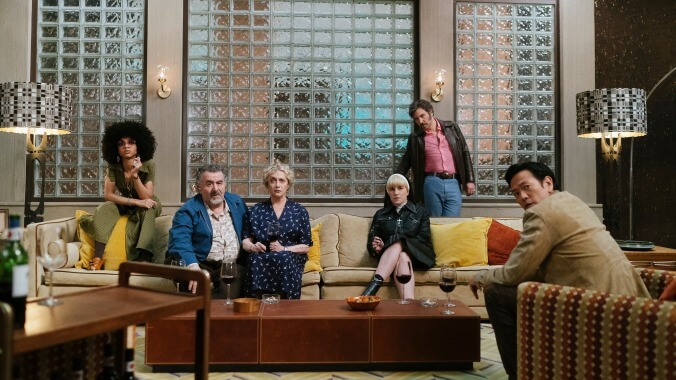The Auschwitz Museum has an issue with the historical accuracy of Amazon's Hunters

Producer Jordan Peele and creator David Weil’s new Amazon series Hunters is a Grindhouse-style revenge fantasy about a team of, well, hunters tasked with tracking down—and killing—Nazis who are hiding out in ‘70s America under new names and identities. It’s a show that is very clearly not trying to represent real life even as it reckons with horrible things that really happened in real life, but the people who run the Auschwitz Memorial Museum believe that it’s taking a few too many liberties with the atrocities committed by the actual Nazis.
The issue, apparently, is a sequence in which the Nazi officers running the Auschwitz concentration camp are shown using human prisoners for a deadly chess game. This comes from Entertainment Weekly, and the Auschwitz Memorial explained on Twitter that it’s issue is that this horrible chess game is not a real thing that happened at Auschwitz, which could confuse people about the things that really did happen there and be used as ammo for Holocaust deniers.
EW’s story notes that other people on social media have tried to explain that Hunters isn’t trying to be strictly realistic and that it can be okay to fictionalize historical events if it’s still within the realm of reason, but the Auschwitz Memorial has taken a surprisingly hard line against that argument, saying it’s “disrespectful and dangerous” to “lie about reality.” The organization also suggests that Hunters should’ve just invented a completely fictional concentration camp if it wanted to create fictional atrocities the Nazis could’ve committed, but by using the name of a real place where people really died, they should’ve instead chosen to “respect its history and suffering of its victims.” Of course, one could argue that inventing a fake concentration camp would be more confusing and more beneficial to assholes who want to argue that the Holocaust never happened, but the Auschwitz Memorial has the right to have whatever opinion it wants about how Auschwitz is represented in media. If the organization thinks fictionalizing real history is harmful, then it very well could be.